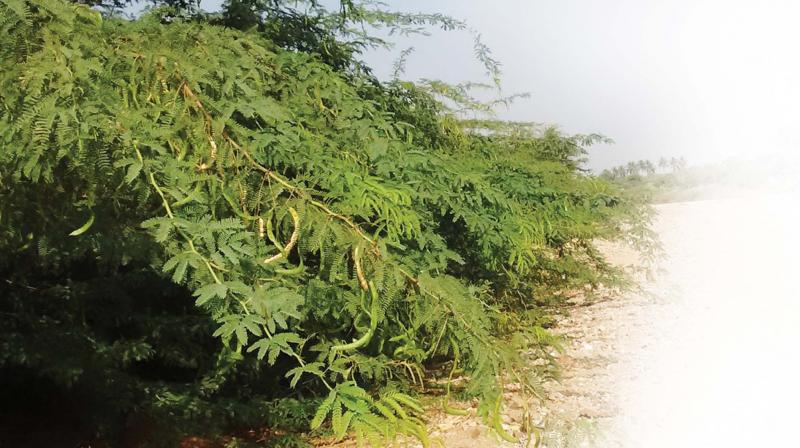Tamil Nadu begins tough battle against invasive species

Chennai: Botanists and conservationists are enthralled over the recent order by Madras high court cracking the whip on all district collectors to ensure the removal of invasive seemai karuvellam, but scientists opine that this is just a start and the state has a long way to go while dealing with the invasive species.
“Besides karuvelam (Prosopis Julifora) Tamil Nadu has its reserve forests invaded by several species and there are at least five major invasive players that need immediate action with list stretching from euphorium, lanterna camara, wattle, pine and water hyacinth. All these alien species need to be weeded out”, explains conservationist A. Kumaraguru of Biodiversity Conservation Foundation.
One of the major reasons for the depleting surface water in forests is the weed intrusion and the biological impact is such that due to poor quality of forests, the peculiar feeding habits of fruit eating birds like Bulbul, Asian Koel and Barbet have changed he said, adding that even tigers are now using lanterna camara shrubs as a hideout exposing the change our forests are undergoing.
Kumaraguru also urged the need for a long-term monitoring process by biologists as a tree regeneration process takes years. Further, the court order and the state policy will succeed only if the local community benefits from the scheme.
Predicting the livelihood deprivation due to the removal of karuvelam, the cheap firewood, activists also urge the state government to take up a comprehensive restoration programme at the earliest.
Jayashree Venkatesan of Care Earth Trust, said, “Though seemai karuvelam was originally introduced for domestic fuel purposes, it was subsequently used for generating coal in semi-arid districts including Pudukottai, Dharmapuri and Nagapattinam after agriculture took a hit.”
“The removal of invasive species should be based upon the ecosystem processes of the region,” said Jayashree, adding that the state should offer enough support to introduce alternative forms of livelihood in the region.
Explaining, she said, “If the species are removed in a wetland, the focus should be on maximising the hydrological capacity of the area. Native species should be planted in replacement to the karuvelam at the Mangrove forests.”
Further seemai karuvelam provides no nesting place to the birds, due to its undergrowth, resulting in the probability of elimination of certain species, she noted.

